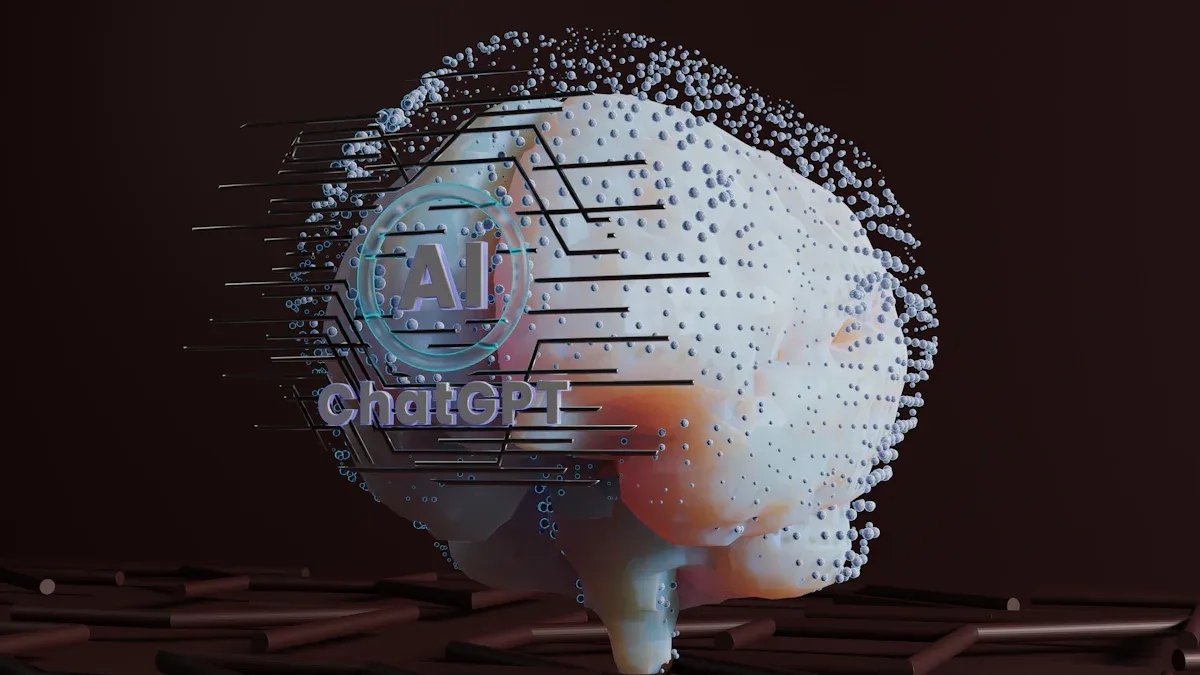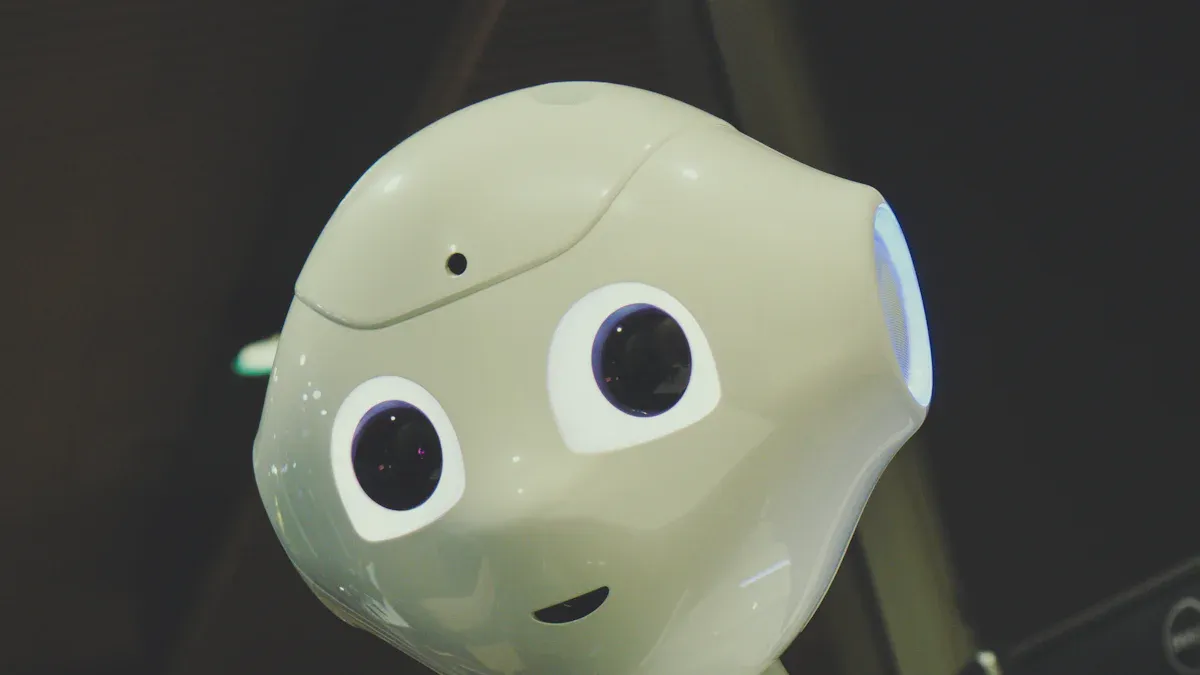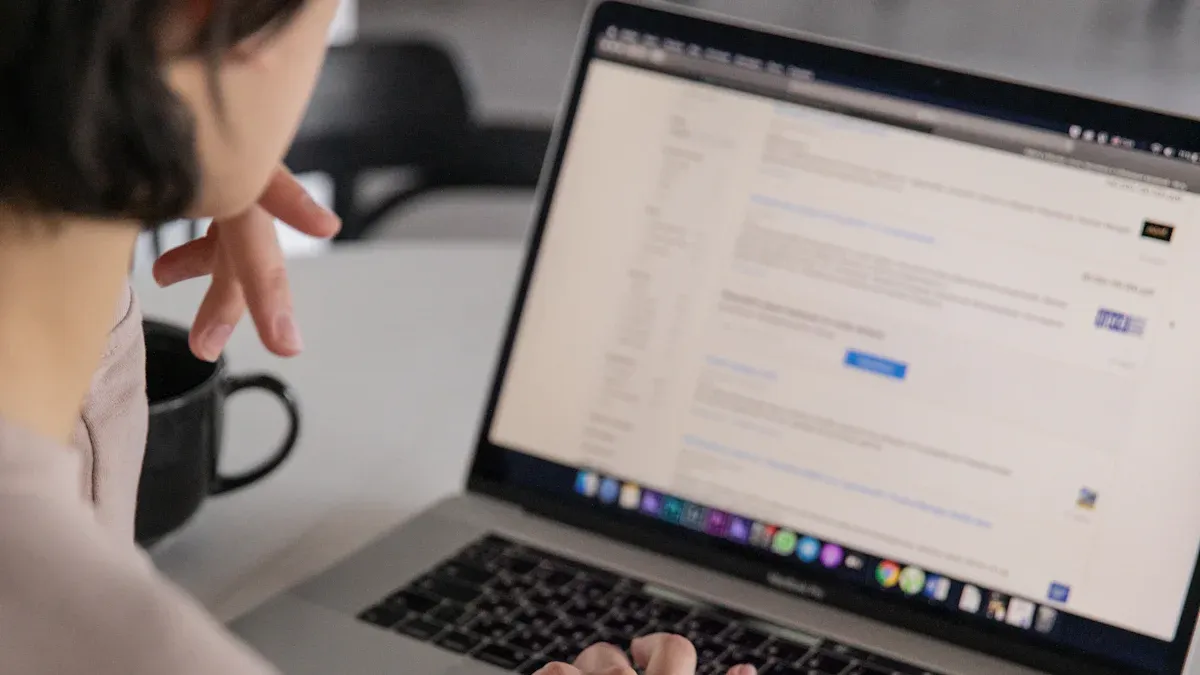How AI is Transforming Job Matching and Recruitment in 2025

Artificial intelligence is changing how you approach hiring. It’s not just about saving time—it’s about making smarter decisions. By 2025, AI recruitment tools are helping employers find the right talent faster and more accurately. Over 87% of companies now use AI in recruitment, and 67% report significant time savings. For job seekers, AI job matching tools are simplifying the search process, with over 50% relying on these technologies. This shift is revolutionizing recruitment, creating a fairer and more efficient system for everyone involved.
Key Takeaways
AI hiring tools save time and make hiring better. Companies use them 87% of the time and save lots of time.
Automated tools find active and hidden job seekers. This cuts hiring time by 30% and keeps workers 25% longer.
AI helps talk to candidates with chatbots and messages. This makes hiring easier and candidates happier.
NLP helps read resumes faster. It improves hiring by 20% and saves 75% of the time spent on screening.
AI helps hire fairly by removing hidden bias. This gives everyone a fair chance and finds more talent.
AI-Powered Candidate Sourcing

Automating Talent Discovery
AI recruiting solutions are transforming how you discover talent. Instead of manually sifting through endless resumes or profiles, you can now rely on AI-driven sourcing tools to scan platforms and databases in seconds. These tools analyze vast amounts of data to identify candidates who match your hiring needs. Whether you're looking for someone with niche skills or a broad range of experience, artificial intelligence makes the process faster and more precise.
One of the most exciting advancements is the ability to find passive candidates. These are individuals who aren't actively job hunting but might be open to new opportunities. Predictive algorithms analyze their online activity, professional achievements, and even social media presence to determine if they could be a good fit. This approach ensures you're not just waiting for the right talent to come to you—you’re actively uncovering hidden gems.
Did you know? Companies using AI-driven sourcing have seen a 30% reduction in time-to-hire and a 25% boost in employee retention rates. That’s a game-changer for talent acquisition.
Enhancing Candidate Engagement
Finding the right candidates is only half the battle. Keeping them engaged is just as important. AI recruiting solutions excel at creating personalized outreach strategies. By analyzing data like a candidate's skills, interests, and career goals, AI can craft messages that feel tailored and relevant. This level of personalization makes candidates more likely to respond and stay interested in the hiring process.
Chatbots are another powerful tool for enhanced candidate engagement. They handle initial communication, answer common questions, and guide candidates through the application process. This not only saves you time but also ensures candidates feel supported every step of the way. In fact, 70% of applicants say faster response times are one of the biggest benefits of AI in recruitment. And with 81% of candidates willing to interact with AI-powered assistants, it’s clear these tools are reshaping the candidate experience.
Pro Tip: A smooth and responsive hiring process leaves a lasting impression on candidates, making them more likely to accept your offer.
AI in Resume Screening and Candidate Matching
Leveraging NLP and ATS
How NLP analyzes resumes for relevant skills
You’ve probably noticed how time-consuming it can be to manually review resumes. That’s where natural language processing (NLP) steps in. This AI-powered technology scans resumes to identify relevant skills, qualifications, and experiences. It doesn’t just look for keywords—it understands the context. For example, if a candidate mentions "project management," NLP can determine whether they’ve led teams or simply assisted in projects. This intelligent candidate matching ensures you’re focusing on the right talent.
Companies using NLP in their recruitment process have reported significant improvements. Integrated platforms reduce hiring time by up to 40%, while AI-powered tools cut pre-employment assessment times by 50%. These numbers highlight how NLP is transforming the way you approach resume screening.
ATS systems for efficient shortlisting
AI-driven applicant tracking systems (ATS) take things a step further. They don’t just store resumes—they actively sort and rank candidates based on your job requirements. These systems analyze resumes for specific skills, certifications, and experiences, creating a shortlist of the most qualified candidates. This automated resume screening saves you hours of manual work and ensures no top talent slips through the cracks.
Here’s a quick look at the measurable benefits of using AI in recruitment:
Improvement Type | Measurement |
|---|---|
Reduction in screening time | |
Decrease in time-to-hire | From 45 to 15 days |
Reduction in recruitment costs | 40% reduction |
Increase in hiring accuracy | 20% increase |
Improvement in quality of hires | 30% improvement |
Improving Accuracy and Efficiency
AI's precision in identifying top candidates
AI excels at precision. It evaluates resumes against your job criteria with unmatched accuracy. By analyzing candidate quality scores, AI ensures only the most suitable candidates make it to the next stage. This intelligent candidate matching reduces the chances of overlooking qualified individuals. You’ll spend less time sorting through irrelevant applications and more time engaging with top talent.
Reducing irrelevant applications
One of the biggest challenges in recruitment is dealing with irrelevant applications. AI solves this by implementing role-specific filters. These filters categorize and prioritize candidates based on their skills and qualifications. For example, if you’re hiring for a software developer role, AI will focus on candidates with programming expertise rather than those with unrelated backgrounds. This streamlined approach speeds up the recruitment process and improves overall efficiency.
AI tools also automate resume scanning, ensuring you identify the right talent quickly. This reduces the workload for your HR team, allowing them to focus on building relationships with qualified candidates. With AI in recruitment, you’re not just saving time—you’re making smarter hiring decisions.
Pro Tip: Use AI to align your hiring strategies with business goals. It’s not just about filling positions—it’s about finding the perfect match for your team.
AI-Enhanced Interviewing and Assessments

Pre-Employment Assessments
AI-driven skills and personality tests
AI-driven recruitment tools are changing how you evaluate candidates before interviews. These tools use artificial intelligence to assess skills, personality traits, and even problem-solving abilities. Instead of relying solely on resumes, you can now measure a candidate’s potential through data-backed insights. For example, AI systems analyze responses to questions and predict how well a candidate fits the role. This approach ensures better candidate matching and improved hiring quality.
The results speak for themselves. Research shows that 92% of organizations using pre-hire tests report improved quality-of-hire. Companies like Unilever have saved 70,000 person-hours annually by adopting AI-based assessments. They’ve also reduced recruitment time by 75%, proving how efficient these tools can be.
Gamified assessments for better evaluation
Gamified assessments take pre-employment testing to the next level. These tests turn evaluations into engaging, game-like experiences. Candidates solve puzzles, complete challenges, or navigate scenarios that reflect real job tasks. This method not only evaluates skills but also keeps candidates engaged. Plus, it provides a more accurate picture of how they’ll perform in real-world situations.
Unilever’s experience highlights the benefits. By focusing on abilities rather than traditional qualifications, they increased diversity metrics by 16%. Gamified assessments make talent acquisition more inclusive and effective.
Chatbots in Interviews
Conducting initial screening interviews
AI-powered chatbots streamline the hiring process by conducting initial interviews. These chatbots ask candidates standardized questions, ensuring consistent evaluation. They also gather qualitative data quickly, making it easier to identify top talent. For instance, one study showed a chatbot collected over 7,000 responses from 395 adults in just one month. This efficiency allows you to focus on more complex decision-making.
Providing real-time feedback
Chatbots don’t just ask questions—they also provide real-time feedback. Candidates receive insights into their performance, helping them improve for future stages. This personalized experience boosts confidence and prepares them for the next steps. With AI-driven recruitment, you’re not just hiring faster—you’re creating a better experience for everyone involved.
Did you know? Companies using AI interviews report a 30% increase in the quality of hires. That’s a win for both employers and candidates.
Bias Reduction and Fair Recruitment
Promoting Diversity and Inclusivity
Removing unconscious bias with AI
Unconscious bias can creep into hiring decisions, even when you don’t realize it. AI in recruitment helps eliminate this issue by focusing solely on skills and experience. For example, AI algorithms can strip away personal identifiers like names or addresses from resumes. This ensures candidates are evaluated based on their qualifications, not factors like gender or ethnicity. By doing this, artificial intelligence creates a fairer screening process and opens doors for underrepresented groups.
AI also expands your talent pool by sourcing candidates from diverse backgrounds. It identifies passive candidates who might not actively apply but have the potential to excel in the role. This approach broadens your reach and ensures you’re not missing out on top talent. Companies using AI tools for diversity have seen significant improvements in their metrics.
Impact on Diversity Metrics | |
|---|---|
Unbiased Job Descriptions | Reduces unintentional biases in job postings |
Broadening Talent Searches | Expands the candidate pool to include underrepresented groups |
Reducing Biases in Resume Screening | Focuses on qualifications rather than personal identifiers |
Ensuring fair evaluation of diverse candidates
AI doesn’t just help you find diverse candidates—it ensures they’re evaluated fairly. By standardizing the hiring process, AI removes inconsistencies that might favor one group over another. For instance, AI-driven assessments evaluate candidates based on their performance in skills tests or simulations, not subjective opinions. This levels the playing field and ensures every candidate gets a fair shot.
Tip: Use AI to create unbiased job descriptions and assessments. It’s a simple way to promote inclusivity in your recruitment process.
Ethical AI in Recruitment
Addressing biases in AI algorithms
While AI can reduce bias, it’s not immune to it. Algorithms can inherit biases from the data they’re trained on. For example, if historical hiring data favors one demographic, the AI might replicate that pattern. To prevent this, you need to use unbiased datasets and regularly audit your AI systems. Ethical AI practices ensure your recruitment process remains fair and inclusive.
Ensuring transparency and accountability
Transparency is key when using AI in recruitment. Candidates should know how AI evaluates them and what criteria it uses. This builds trust and reduces the risk of discrimination. You can achieve this by improving algorithmic transparency and providing clear explanations of AI-driven decisions. Ethical AI practices not only enhance fairness but also strengthen your company’s reputation.
Did you know? Transparent AI systems help reduce discriminatory practices and improve the overall candidate experience.
Predictive Analytics in Recruitment
Forecasting Hiring Needs
Predicting future talent requirements
Imagine knowing exactly what skills your team will need in the next five years. That’s the power of predictive analytics in recruitment. By analyzing current skill sets and comparing them to industry trends, artificial intelligence can help you identify future skill gaps. It doesn’t stop there. AI in recruitment also uses internal and external data to forecast staffing needs, including the number of hires and the types of roles you’ll need to fill. This means you can stay ahead of the curve and build a workforce that’s ready for tomorrow’s challenges.
Here’s what predictive analytics can do for you:
Identify skills gaps by comparing your team’s abilities to projected industry demands.
Forecast demand for specific roles and the number of hires required.
Optimize your talent pipeline by predicting effective recruitment strategies.
Build a future-proof workforce by anticipating skills your team will need and offering targeted training.
Aligning hiring strategies with business goals
Your hiring strategy should align with your company’s goals. Predictive analytics makes this easier by evaluating your existing workforce. It identifies strengths and gaps, helping you plan for the future. For example, if your business plans to expand into new markets, analytics can forecast the skills and roles you’ll need to succeed. This ensures your recruitment efforts directly support your organization’s success.
Data-Driven Decision-Making
Insights for better hiring decisions
Data-driven decisions aren’t just a buzzword—they’re a game-changer. Predictive analytics gives you insights into what makes a candidate successful in your company. For instance, a mid-sized tech company used analytics to improve hiring accuracy by 50%, saving $200,000 annually. By identifying key attributes of successful employees, you can focus on candidates who truly fit your needs. This approach doesn’t just save money—it ensures you’re hiring the right people for the job.
Optimizing workforce planning
Workforce planning becomes a breeze with analytics. Companies using data-driven strategies are five times more likely to make faster, better decisions, according to McKinsey. Imagine reducing absenteeism by 41% and boosting productivity by 17%. That’s what happens when you integrate data into your workforce strategies. Analytics helps you plan for the future, ensuring you have the right people in the right roles at the right time.
Pro Tip: Use predictive analytics to align your hiring strategies with your long-term goals. It’s not just about filling positions—it’s about building a team that drives success.
AI is reshaping how you approach recruitment, making it faster, smarter, and more inclusive. By 2025, ai job matching has become a cornerstone of hiring, helping you connect with the right candidates while saving time and resources. With tools that automate up to 70% of tasks and improve recruiter productivity by 60%, the future of hiring is here.
AI also ensures fairer evaluations by removing biases and expanding your reach to diverse candidates. For example:
AI scans job descriptions for biased language, attracting a broader range of applicants.
Programmatic job advertising ensures your postings reach underrepresented groups.
The future of hiring lies in leveraging ai job matching to create a more efficient and equitable process. It’s not just about filling roles—it’s about building teams that drive success.
FAQ
What is AI job matching, and how does it work?
AI job matching uses algorithms to pair candidates with roles based on skills, experience, and preferences. It analyzes resumes, job descriptions, and even behavioral data to find the best fit. Think of it as a smart assistant that connects you with the right opportunities.
Can AI really reduce bias in recruitment?
Yes, AI can help reduce bias by focusing on skills and qualifications instead of personal identifiers like names or photos. It evaluates candidates objectively, ensuring fairer hiring decisions. However, you should monitor AI systems to ensure they don’t inherit biases from training data.
Are AI-powered tools replacing human recruiters?
Not at all! AI tools assist recruiters by automating repetitive tasks like resume screening and initial outreach. This frees up your time to focus on building relationships and making strategic decisions. AI enhances your role—it doesn’t replace it.
How secure is candidate data in AI recruitment systems?
Most AI recruitment platforms prioritize data security. They use encryption and comply with privacy regulations like GDPR. However, you should always choose reputable providers and review their data protection policies to ensure candidate information stays safe.
Do candidates trust AI in the hiring process?
Many candidates appreciate AI for its speed and fairness. Tools like chatbots and personalized recommendations improve their experience. Transparency is key—when candidates understand how AI evaluates them, they’re more likely to trust the process.
Pro Tip: Always communicate how AI is used in your hiring process. It builds trust and enhances the candidate experience.
See Also
The Transformation of Talent Acquisition Through AI Recruitment Tools
AI Recruitment Software's Influence on Today's Hiring Methods
Harnessing AI Tools to Forecast Candidate Performance Effectively
From recruiting candidates to onboarding new team members, MokaHR gives your company everything you need to be great at hiring.
Subscribe for more information

